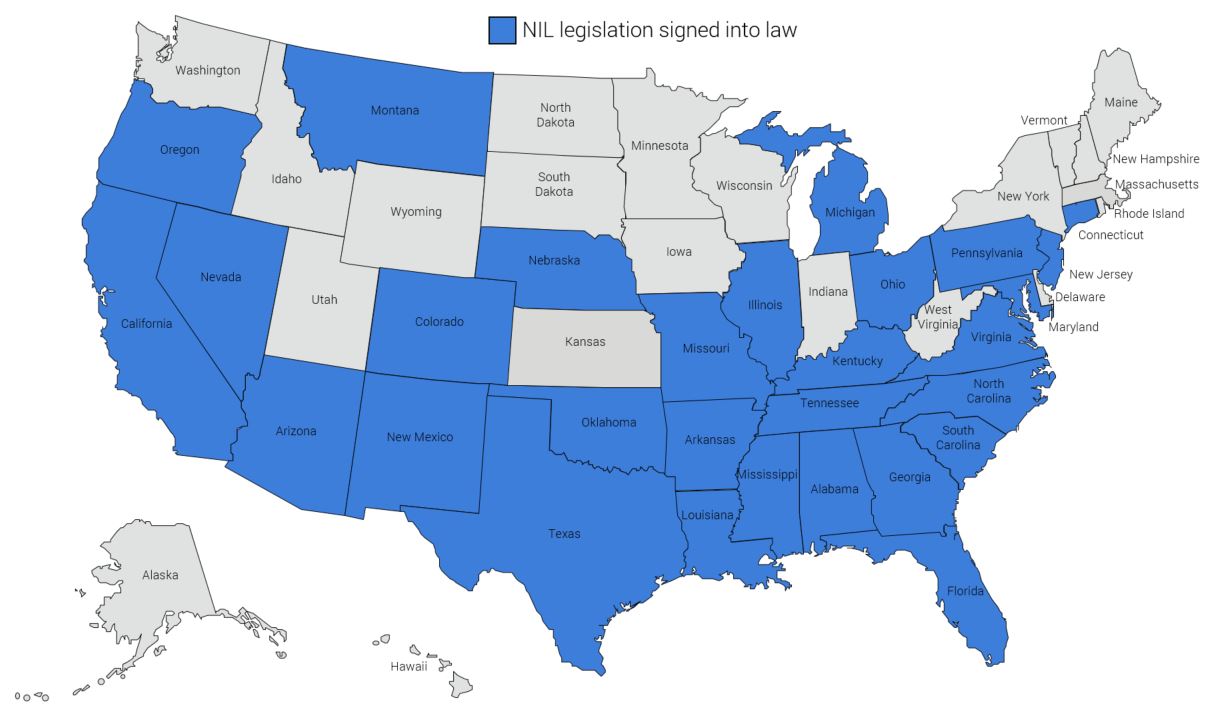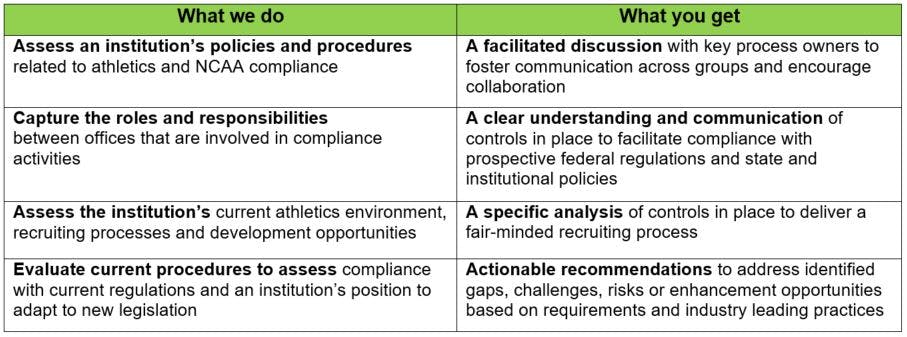Illinois Governor JB Pritzker signed Senate Bill (SB) 2338 into law on June 29, 2021, permitting student athletes to earn compensation for the use of their name, image, likeness or voice effective July 1, 2021.
Illinois public and private institutions, including community colleges, are prohibited from:
- Upholding a rule that prevents a student athlete from earning compensation through the use of their name, image, likeness or voice
- Affecting an athlete’s institutional scholarship as a result of earning compensation from use of the student’s NIL
- Directly or indirectly entering into or offering to enter into a publicity rights agreement with a prospective or current student athlete
- Providing a prospective or current student athlete or their family NIL-related compensation
- Preventing a student athlete from obtaining professional representation in relation to name, image, likeness or voice or securing a publicity rights agreement, including but not limited to representation provided by athlete agents or legal representation provided by attorneys
– Note: any agent, legal representative or other professional service provider must comply with the federal Sports Agent Responsibility and Trust Act and any other applicable laws
No booster, third-party or other individual or entity may arrange for compensation to a prospective or current student athlete as an inducement to attend or enroll in a specific institution.
Institutions may:
- Impose reasonable limitations on the dates and time that a student athlete may participate in endorsement, promotional, social media or other activities related to the license or use of their NIL
- Fund an independent third-party administer to support NIL education, monitoring, disclosures and reporting
– Note: this third-party administrator cannot be a registered athlete agent
Student athletes are prohibited from earning compensations in exchange for:
- Athletic ability
- Participation in intercollegiate athletics or sports competition
- An agreement or willingness to attend a postsecondary educational institution
Student athletes are prohibited from entering into NIL contracts that:
- Use any registered or licensed marks, logos, verbiage, name or designs of a postsecondary institution without written consent
- Conflict with a provision of the student athlete’s team contract
- Provide compensation before the date that the student athlete enrolls at a postsecondary institution
- Endorses or promotes the following:
– Gambling
– Sports betting
– Controlled substances
– Cannabis
– Tobacco or alcohol company, brand or products
– Alternative or electronic nicotine product or delivery systems
– Performance-enhancing supplements
– Adult entertainment
– Any other product that is reasonably considered to be inconsistent with the values or mission of a postsecondary educational institution
Student athletes must disclose any NIL-related contract to their institution’s designated official within seven days of entering into a NIL agreement. Publicity rights contract equal to or in excess of $500 must be formalized in a written contract and provided to the institution prior to execution and before compensation is provided to the student athlete. Contracts may not extend beyond the student athlete’s participation in the sport at the institution.
Student athletes are not to be deemed an employee, agent or independent contractor of a postsecondary institution, athletic association or conference based on their participation in intercollegiate athletics.
The bill does not:
- Restrict an institution from exercising its sole discretion to control the authorized use of it marks or logos or to determine a student athlete’s apparel, gear or other wearables during athletic competition or institution-sponsored event
- Modify any requirements or obligations imposed under Title IX of the Education Amendments of 1972
Under this act, postsecondary education institutions cannot be subject to a claim for damages of any kind, including but not limited to a claim for unfair trade or competition or tortious interference.
Access Illinois SB2338 here.




